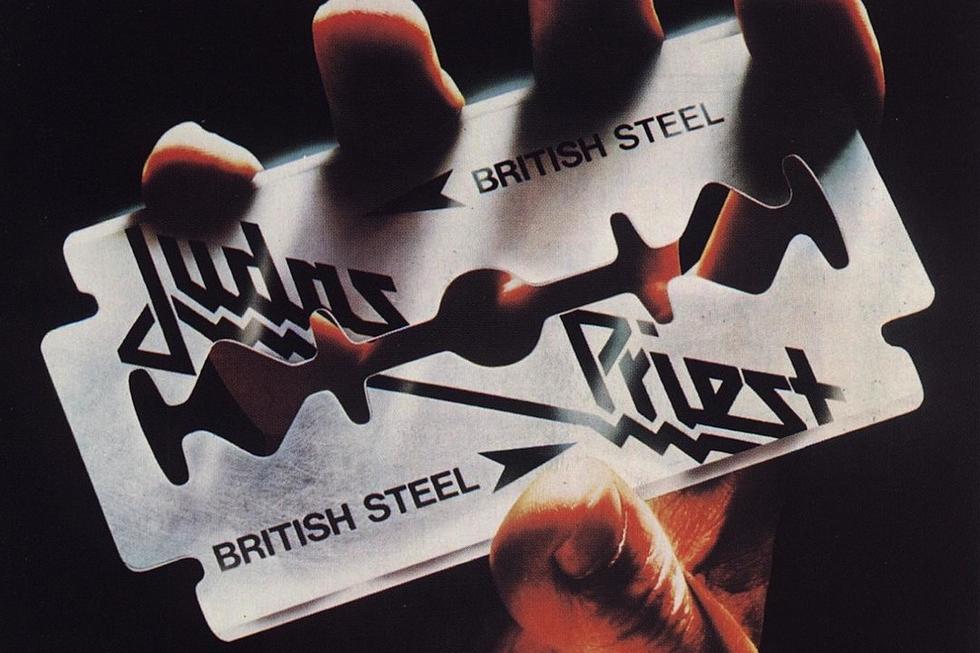
40 Years Ago: Judas Priest Learn a Crucial Lesson With ‘British Steel’
When it comes to heavy metal, more and louder are always better, right? That's not what Judas Priest learned during the making of the album that finally made them superstars.
Released on April 14, 1980, more than a decade after its formation, British Steel found the band stripping down its sound even more dramatically than it did on 1978's streamlined Hell Bent for Leather. After making their name on the strength of complex multi-part epics such as "Genocide" and "Victim of Changes," Judas Priest dramatically changed their approach.
"When things get too complicated, you wind up having to be a musician to understand it," bassist Ian Hill tells UCR. "We didn’t really want that. We wanted to make things as excellent and as involving as we could. When you’ve got two distorted guitars, what happens underneath needed to be comparatively simple, to let the guitars breathe. If we were playing complicated drum patterns and drum lines, some of that would have been lost."
"A lot of that came from [producer] Tom [Allom]," adds singer Rob Halford. "Tom had an idea of just really keeping it stripped down and very simple and direct. Remember, he engineered the first two Black Sabbath albums. So, sonically he was aware that if you crammed too much into a track, it starts to get smaller instead of bigger. It sounds crazy, but it’s true. So, what you provide by distancing things is making everything stand out more. The drums sound bigger, the guitars sound bigger, everything sounds bigger because it’s getting its own space. That worked incredibly well for us with British Steel. There’s no other record that sounds like that, in that respect, in the Priest catalog."
Halford also believes the dawn of a new decade presented the perfect time to make such a strong creative leap. "I’ve noticed the fact that the beginning of every single decade in music, specifically rock and metal, it always has a kind of moment of energy and excitement," he notes. "It re-surges. It’s very peculiar, but it seems to happen."
Watch Judas Priest's 'Living After Midnight' Video
British Steel certainly surged, spawning two gigantic career-defining songs: "Living After Midnight" and "Breaking the Law." And the LP became the band's first studio album to sell a million copies in the U.S.
Even though MTV's launch was still a year away, music videos for both tracks showcased both the band's sound and newly perfected studs-and-leather fashion. "Everything sort of clicked with that album," Hill marvels four decades later. "All the different components of what we call Judas Priest heavy metal fell into place: the sound, the direction, even the image."
Top 50 Classic Heavy Metal Albums
More From Ultimate Classic Rock









